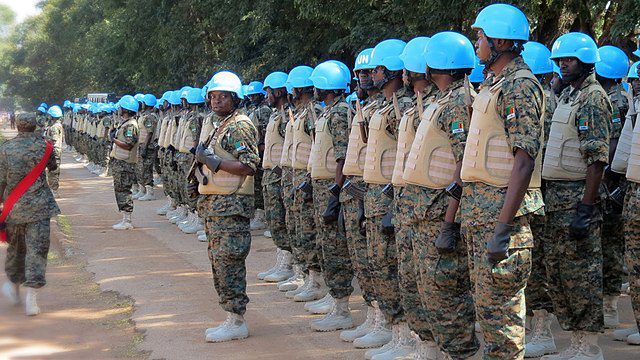Faced with Bamako’s intransigence to release its soldiers accused of mercenarism, Cote d’Ivoire has announced the gradual “withdrawal” of its troops from the MINUSMA.
The political crisis between Cote d’Ivoire and Mali, which has been going on for five months, is taking a new turn. The Ivorian Minister Delegate for Foreign Affairs had already set the tone on October 28 during his meeting with the Secretary General of Peace Operations, Jean Pierre Lacroix.
The Ivorian government shifted into high gear on November 11 by confirming to the office of the UN Under-Secretary-General for Peace Operations the “gradual withdrawal” of its troops from the United Nations Multidimensional Integrated Stabilisation Mission in Mali (MINUSMA).
“The rotation of the protection company based in Mopti and the deployment of staff officers (MSO) and police officers planned for October 2022 can no longer be carried out,” Cote d’Ivoire permanent mission to the UN explained. Similarly, the note consulted by APA added, Cote d’Ivoire does not plan to relieve in August 2023 the military and other elements present within MINUSMA. As of July 1, 2020, Cote d’Ivoire was the 7th largest contributor of troops to MINUSMA, with 816 soldiers.
Tensions between Abidjan and Bamako
This decision comes in a context of diplomatic discord between Bamako and Abidjan, following the arrest by the Malian transitional authorities of 49 Ivorian soldiers on July 10 at Modibo Keita Bamako-Senou International Airport. Accused of mercenarism, the Ivorian soldiers were charged on Friday August 12 for “attempting to undermine state security” by the Public Prosecutor at the High Court of Bamako VI, much to the displeasure of Abidjan.
Cote d’Ivoire immediately demanded their unconditional release, stating that the arrested soldiers are on the army’s roster and are deployed in Mali as part of a UN troop support mechanism known as the NSE (national support elements).
A West African mediation mission, led by Togo, initiated discussions between the two parties and managed to secure the release of three women among the 49 soldiers, assuring that talks would continue for the release of the remaining 46. But the day after what looked like the beginning of a thaw, Colonel Assimi Goïta, receiving the Nigerian Minister of Foreign Affairs, demanded in return the extradition of Malian personalities who had taken refuge in Cote d’Ivoire.
Abidjan denounced “blackmail” and “hostage-taking” and immediately referred the matter to the Economic Community of West African States (ECOWAS) Commission to arbitrate the dispute with its northern neighbour. To this end, an extraordinary session was convened by the Guinea-Bissau head of state, Umaro Sissoco Embalo, current president of the institution in New York, on the sidelines of the 77th United Nations General Assembly.
At the end of their meeting on September 22, the West African heads of state demanded the release of the Ivorian soldiers and decided to send to Bamako “a high-level mission” made up of three presidents whose visit to Mali on September 29 is still not known to the general public.
AC/cgd/lb/abj/APA


